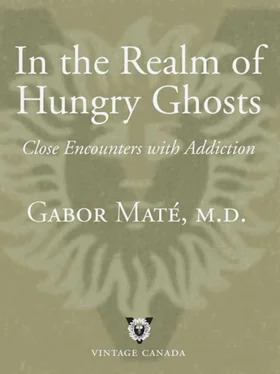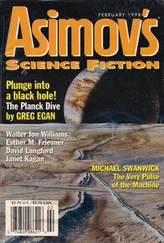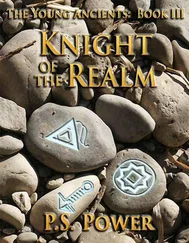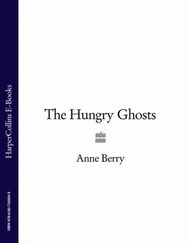Not only are the identical incentive-motivation and attachment-reward circuits impaired in the brains of overeaters and drug addicts, so are the impulse-regulating functions of the cortex. “Some evidence suggests a decision-making impairment in obese patients,” a recent article in The Journal of the American Medical Association pointed out. “For example, very obese individuals score worse than substance abusers in the Iowa Gambling Test, a paradigm that also relies on the integrity of the right PFC [pre-frontal cortex] for execution.” 15The same authors noted that obese people are more prone to stress, since their hormonal stress-response apparatus is disturbed—another characteristic in common with other addicts.
Compulsive shoppers experience the same mental and emotional processes when engaged in their addiction. The thinking parts of the brain go on furlough. In a brain imaging study conducted at the University of Munster, Germany, scientists found “reduced activation in brain areas associated with working memory and reasoning and, on the other hand, increased activation in areas involved in processing of emotions,” when even ordinary consumers were engaged in choosing between different brand names of a given product. 16Under logo capitalism, it turns out, the vaunted “market forces” are largely unconscious—a feature of addiction that advertising agencies well understand. In previous work the electrical discharges of the brain circuits governing pleasure were also found to be in overdrive during shopping, in contrast to the rationality circuits. Neurologist Michael Deppe, the lead researcher, said that “the more expensive the product, the crazier the shoppers get. And when buying really expensive products, the part of the brain dealing with rational thought has reduced its activity to almost zero…. The stimulation of emotional centres shows that shopping is a stress relief.” 17
Addictions are often interchangeable—a fact that further buttresses the unitary theory that there’s a common addiction process. Although my addictive tendencies are most obvious in my compact-disc-buying habit, I can shift seamlessly into other obsessive activities. The week we moved into our present home, twenty-four years ago, I attended the birthing of six babies, most of them at night. I’d accepted into my practice fifteen women whose due dates came that month, about ten too many for a busy family physician. I couldn’t say no to being wanted. During the day, when not at the maternity hospital, I was working in my office. You can just imagine how much energy and presence I had left for my family. I have thrown myself equally blindly and avidly into political work and other pursuits. I’ve even had several of my addictions up and running at the same time. That is, the addiction process was active and looking for more and more external trophies to capture. For all that, the anxiety, ennui and fear of the void driving the whole operation rarely abated.
The less “respectable” and more harmful behavioural addictions play themselves out in the same way. Dr. Aviel Goodman has drawn this conclusion from research showing a significant overlap between his area of study (sex addiction) and other addictions, such as compulsive shopping, substance dependence and pathological gambling. In other words, many sex addicts will also have one or more of these superficially different addictions. 18Pathological gamblers, too, are highly likely to fall under the sway of other destructive habits. About half of them are alcoholics and the vast majority are addicted to nicotine—and the more severe a person’s gambling, the stronger the addiction to alcohol and smoking. 19
Finally, the phenomena of tolerance and withdrawal are also connected with behavioural addictions, if not nearly to the same degree as with drug addictions. Tolerance means needing more and more of the same “hit” to get the same effect (that is, the same dopamine high). I usually begin my CD-buying binges with only one or two discs, but with each purchase the craving increases. In the end I’m hauling home hundreds of dollars’ worth of recorded music every time I visit that den of iniquity, Sikora’s music store. Withdrawal consists of irritability, a generally glum mood, restlessness and a sense of aimlessness. No doubt it has its chemical components: I’m experiencing the effect of diminished dopamine and endorphin levels. Other nonsubstance addicts experience similar symptoms after abruptly stopping whatever behaviour they were binging with. The journey from addictive self-indulgence to depression is rapid and inexorable.
“I’m working on sifting through my need for extremes in my life,” the gifted writer Stephen Reid, now in jail for bank robbery, told me. Needing extremes, the addict leaps from one behaviour to another. There may be “a million stories in the Naked City,” as an old New York cop program claimed, but there’s only one addiction process.

While I was writing this book, my son Daniel served as my first editor. During the course of our mutual work we’ve had many discussions on addiction, and I asked him to write down his thoughts. His words illustrate how the addiction process can change its forms of expression without altering its basic nature. Whatever gets you through the night.
Dad,
I remember laughing derisively at age fourteen when you told me you were a CD addict: it sounded cushy, absurd. It also sounded like an excuse; suddenly you had a “problem,” a pet alibi for being so erratic and absent-minded. The constant blare of classical music in our home was now further evidence of your pain; the Mahler shaking my bedroom ceiling was a reminder of your complexity. Was I supposed to feel sorry for you? I didn’t know, nor did I care much to imagine, what void you were striving to fill. All I knew about it was what I inferred from the cycles of your behaviour: it was more important to you than the family was, than I was. I found this all a bit too pathetic, and I disdained this “addiction” business (because I thought it was bogus) and at the same time resented it (because I knew it was, on some level, valid).
So as you can imagine, I’ve never been eager to apply the term “addicted” to myself, even when the evidence points that way.
Part of the spin job is, “Hey, I can’t be addicted. I don’t have a central addiction, like my Dad.” Maybe I’ve had a series of them, little ones, but they never last. They neither run nor ruin my life utterly. I imagine Woody Allen making comic hay out of that set-up: “Honest, sweetheart, I could never become an alcoholic; I’m horrible with commitment.” I could even coin a new term. “ADD”iction: the inability to concentrate on one bad habit for any length of time.
I could name such seemingly innocuous things as a blog I kept in New York after I arrived there for grad school, and the series of personal development workshops I took several years ago. Those are just two recent examples. In each case my involvement started out as a very positive thing in my life, full of vigour and excitement, before it morphed into an all-consuming and counterproductive force.
The blog began as a way of channelling my excitement about being in a new environment.
During those nervous first months of grad school, I wrote in my blog sometimes for three or four hours a day—or night—instead of making time for social activities or exercise or sleep, or even schoolwork—in short, life. I felt compelled by some strange muse to push the blog envelope by including more and more private details about my life. It was like some wondrous Seussian contraption: I fed myself, like raw material, into the BlogMatic 3000 and out came a vivid, clever, sparkling artifact, so much more interesting and well-defined than my actual life as I knew it. I recall that even you and Mom, and many of my friends, lapped it up for a time, until it crossed that invisible line between self-expression and self-obsession—and then you let me know I’d crossed it. I’d surfed atop a wave of glowing attention, and so when it crashed I was genuinely perplexed.
Читать дальше













